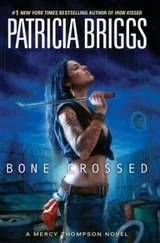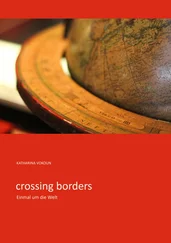‘When are you coming home?’ his mother had asked, though the bungalow she lived in now had never been his home. Not that half-mythical place where dead leaves under a rhododendron bush brought back the time when he was two years old, small enough to crawl under the bush and believe himself forgotten, while adult feet, his mother’s in sandals, his father’s in the cracked, brown shoes he wore for gardening, tramped to and fro, and adult voices, loud, artificial, asked, ‘Where’s Tom? Have you seen Tom? I can’t think where he’s got to, can you?’ And he’d giggled nervously, afraid he might really be lost, invisible, relieved when his father pounced on him, shouting through the shiny green leaves, ‘I’ve got him! Here he is!’
They’d moved into the bungalow a year before his father’s death, when it became clear that the wheelchair he persisted in treating as a temporary inconvenience was going to be nothing of the kind. It was on the outskirts of a small country town, only five minutes’ drive from the motorway interchange. ‘We can be anywhere,’ his mother had said proudly, ‘in half an hour.’ Though she’d gone nowhere while his father was alive. The local shops, hurrying there and back, had been the limit of her range.
He set off early. As he dropped down into the Vale of York, a thin mist began to drift across the road, clotting in the hollows, reducing him to a walking pace. Cows, white vapour draped around their horns, came to the fence and chewed as the car crawled past. Then, as quickly as it had come, the mist cleared, and the sun shone. It looked like being a hot day.
He passed the pub where he and his father had gone for what turned out to be their last drink together, though they hadn’t walked, as in the dream: he’d pushed his father there, horrifically used to doing it by then. His father sat hunched forward, dissociating himself from the chair. He only consented to be seen in it at all because in this village he was relatively unknown. He, who in his irascible way had preached patience to patients for years, never got used to the effects of his stroke, never accepted the damage, always turned his face away, even from those closest to him, to hide the disfiguring sneer. He wouldn’t adjust, wouldn’t accept that the changes were permanent, and he was right there, though death, not recovery, returned the wheelchair to the garage. Where it still was. Not because of any sentimental attachment, but because nobody had yet summoned up the energy to give it away.
He slowed and turned right into the drive, and Tyger, his mother’s cat, came slowly across the lawn to greet him, white-tipped tail held aloft, rubbing his face against Tom’s ankle almost before he was out of the car. ‘Hello, there,’ he said, bending down to rub the backs of Tyger’s ears.
His mother must have been waiting for the car. He saw her, blurred and tenuous through frosted glass, before he had time to press the bell. Opening the door, she started to cry, then stopped herself. He kissed her, and felt the scrumpled tissue of her cheek too soft against his lips. He didn’t like the way her flesh was sagging, knew it was too fast, that she was losing weight, probably neglecting herself, but he didn’t know what to do about it, or how to raise the topic without appearing to nag.
‘How are you, Mum?’
‘Not so bad.’
It was always ‘not so bad’. He fully expected to hear those words from inside her coffin. Because of the heat — the bungalow’s picture windows turned any warm day into a scorcher — she was wearing a short-sleeved white t-shirt, and he saw how the flesh on her arms hung loose from the bone. She was still only sixty-two, but some people wither quickly in the absence of physical love, and he knew instinctively how good his parents’ love-making had been. It was one of the reasons why, as a teenager, he’d felt different from other kids. They thought of their parents as ‘past it’ — he knew he hadn’t reached it. (Still hadn’t, for that matter, and time was running out.)
‘I thought we’d just have a salad,’ she was saying. ‘It’s a bit warm, isn’t it, for anything hot?’
He poured her the first of the two sherries she allowed herself before lunch, and himself a strong gin and tonic. They took their glasses out to the patio. Tyger jumped on to the table, squeezing his golden eyes shut several times in token of friendship, before losing interest in the proceedings altogether and going to sleep.
The garden stretched out, not so much in front of them, as above them, for Tom’s father, in the last year of his life, had supervised the building of raised flower beds, beds he could reach from the wheelchair he refused to admit was permanent. ‘It’ll be easier for your mother’s back,’ he’d told Tom unblushingly, though then she’d suffered no more than the usual slight creaks of middle age.
Now her arthritis was so bad, his mother was saying, the raised beds were a godsend. She got up, face tense with what she always referred to as ‘discomfort’, and showed him, with the trowel that lay always ready to hand, how easy it was for her to turn the soil Then, heavily, back to the chair, his father’s evasion turned into reality, and Tom found himself wondering how deep loyalty can go.
It was mid September. The late roses were still at their best; her arms were scored with red scratches where the gloves didn’t reach. He knew she was dreading the winter, when there would be nothing, or little, to do, except on the afternoons she worked at the Community Centre.
A year ago she’d been gearing herself up to face retirement. ‘You’ll keep busy,’ he’d said. ‘I bet six months after you retire you’ll be wondering how to fit everything in.’ He’d meant, You’re used to coping with loss. You’re good at it. Now he looked at her and wondered whether she was coping at all.
On the way over he’d been wondering whether to tell her about the dream he’d had about his father, and had almost decided not to, but sitting there, looking at the garden his father had started to make, and not lived to complete, he did tell her. It was one of their rules that his father’s name should be frequently on their lips, not obsessively, but casually, naturally, as absent friends are mentioned. But when he came to the ludicrous conclusion: that’s what a great love comes to, a rabbit running between graves, he hadn’t the heart to repeat it.
‘What an extraordinary dream,’ she said when he’d finished, and then, with barely a pause, ‘Of course the rabbits are a problem.’
Tom felt himself go cold, a light chill, as if a cloud had drifted over the sun, but then realized she’d gone back to talking about the garden. Rabbits, from the gorse-covered hills behind the bungalow, regularly ate her new plants. You saw their bright, round, shiny pellets in clusters all over the lawn.
This October would be the second anniversary of his father’s death. Some textbooks describe grieving for more than six months as prolonged. They were well into injury time, though they’d grieved like professionals: brought the body home, kept the coffin open, visited him frequently, in the cold room, with the windows wide open and a single light burning by his head. They’d touched his hands, become familiar with the density of dead flesh, watched the minute changes of expression as the rigor mortis wore off. And yet none of this had been enough to make them accept the reality of his going. He had been, even in his final illness, too large a presence. She still heard the hiss of wheelchair tyres along the wet paths, his voice calling for her from another room, because he’d depended on her totally in that last illness, not merely for the physical needs of life, but for her presence, her touch, her voice, her smell. As the sexual bond loosened, it had been replaced by this other, maternal, bond, equally physical, so that for her there had been no release from the white heat of bodily closeness in which their lives had been lived. It was too great a gap to be filled.
Читать дальше












